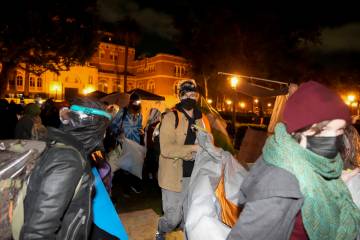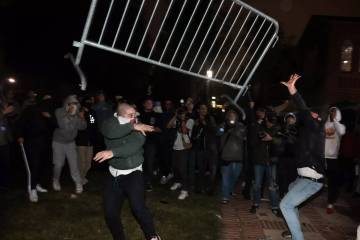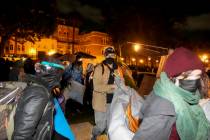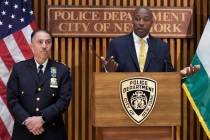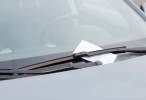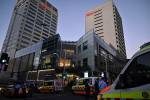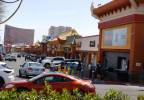Cities blue over parking placards
PORTLAND, Ore. — A blue placard dangling from the rear-view mirror is the equivalent of parking gold for drivers in many cities — they can park for free and for as long as they want. Now there’s a gold rush on for them.
And as the number of vehicles displaying a disabled placard has soared with an aging population and loosened eligibility standards, cities are seeing the impact in more congested downtowns and the loss of millions of dollars in revenue.
Now, officials are pushing back, tightening standards for those who can get the placards and making sure that the only people who get the privilege are those who really need it.
“It was astonishing to see car after car after car with the disabled placard,” said Portland City Commissioner Steve Novick, who is seeking a solution to the problem in a city with a reputation for bicycling and mass transit but still reliant on the car.
It’s common in the city to find blocks in which there are more cars with placards than without. Stroll by a parking meter, and you will see the placards through the windshields of both beaters and BMWs.
In the city’s annual survey of roughly 9,000 downtown meters, just over 1,000 vehicles had disabled placards in October 2012, a 72 percent increase in five years. In the core area of downtown, a third of the vehicles had placards.
As a result, Portland lost an estimated $2.4 million in meter revenue last year, and the lack of turnover frustrates store owners, deprives the severely disabled of spaces near their destination and forces drivers to circle blocks in search of a spot.
Authorities issued 186 citations for unlawful use of a permit the fiscal year ending June 30, but believe there is more abuse.
Cheaters are tough to catch because the placard is generally valid and the driver, who may be borrowing one, is only at the car for a couple of minutes during the workday.
Experts say the easiest way to stop abuse is to make the disabled pay the meter, especially those not in wheelchairs. Places such as Philadelphia, Raleigh, N.C., and Arlington County, Va., did so and there was more turnover in the spots.
The Illinois Legislature passed a law that takes effect next year in which free-metered parking will be reserved for only the most severely disabled residents. It was spurred in part by Chicago’s decision to privatize its parking meters. As part of the deal, it agreed to reimburse the company for free parking provided to holders of disabled placards. The tab since 2009: $55 million.
“Economically, a free parking pass is a very nice thing to have, and there are always enough people who are a bit unscrupulous when it comes to parking that you can’t expect self-restraint,” said Donald Shoup, a UCLA urban planning professor and author of “The High Cost of Free Parking.”
One of Shoup’s former students, Jonathan Williams, researched curbside parking in Los Angeles while getting his master’s degree, finding that cars with placards took most spots when the workday began and often didn’t leave until it ended.
On one block in the financial district, placards consumed 80 percent of the total meter hours. Though the spaces were occupied 95 percent of the time, meters that charged $4 an hour collected an average of only 28 cents an hour.
California started issuing placards in 1959 to people unable to move without a wheelchair. Within two decades, it was expanded to include people with breathing problems and general mobility problems.
“We looked back from 1990 to 2010, even normalized for population growth, there was a 350 percent increase in the number of placards issued in California,” Williams said. “Even if there was no abuse, there are a lot of placards in circulation.”
Oregon has issued placards to 354,000 of its 3 million drivers. Those authorized to sign a permit include doctors of medicine, chiropractors, osteopaths, podiatrists, optometrists, naturopaths, nurse practitioners and physician assistants.





